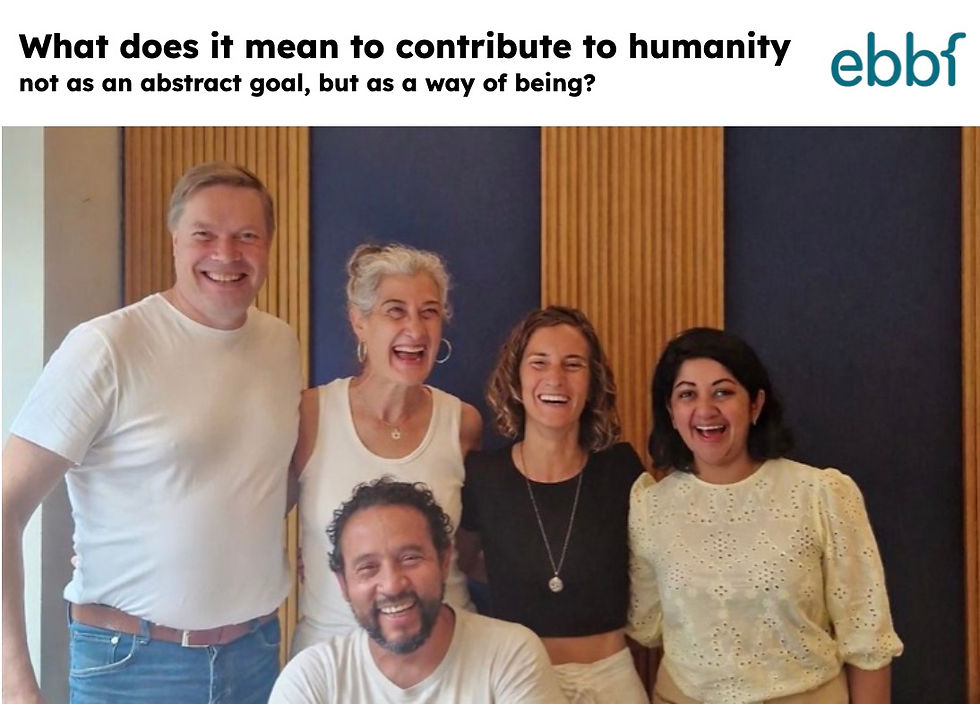Johannesburg – Leyla Tavernaro’s ideas on rethinking and making virtuous popular talk sh
- Jun 17, 2016
- 2 min read
In this insightful article published in South Africa’s The Conversation, ebbf member Leyla Tavernaro offers new ideas on how to create enriching as opposed to destroying talk shows, thus offering new ways to use these very influential media opportunities. Below a couple of excerpts with some of her views:
Denouncing the ‘other’
Talk shows exemplify one prevalent way that communication pans out, particularly in the West. Often, two or more camps are formed. Each side presents and defends its position while challenging or even denouncing the “other”.
For example, “stay-at-home moms” are pitted against “working moms”, implying an inherent conflict of interest between “equality” versus “child care”, as an episode of the “Tyra Banks” show once did. This adversarial model of communication is often replicated in other parts of the world, including the Middle East.
This type of what journalist and scholar Deborah Tannen calls “argument culture” became influential with the ascendancy of Western liberal thought. According to her, it has successfully challenged and confronted oppressive, authoritarian systems but may not be entirely unproblematic.
Addressing full complexity
Its agonistic emphasis excludes many less aggressive or argumentative voices. It reduces issues into binaries, failing to address their full complexity. It also obscures facets of discussion where common ground often does exist. For example, in many cases talk show guests do agree and game show contestants suddenly cooperate. This became particularly apparent in the first season of Endemol’s “Survivor South Africa”, where contestants took a significantly more collaborative posture towards their tasks than their American counterparts.
It would then be compelling to explore what would happen if we engage in a form of public discourse that deliberately draws out collaboration. What if there were common ground between “stay-at-home moms” and “working moms”? As a mother who spends a lot of quality time with her child and still manages to carve out a meaningful career, I am compelled to investigate the efficacy of such framing.
In many such societies like South Africa, globalisation has involved bringing in Western liberal democratic values and systems. They include discourses on human rights or justice that are at odds with local realities.







Comments